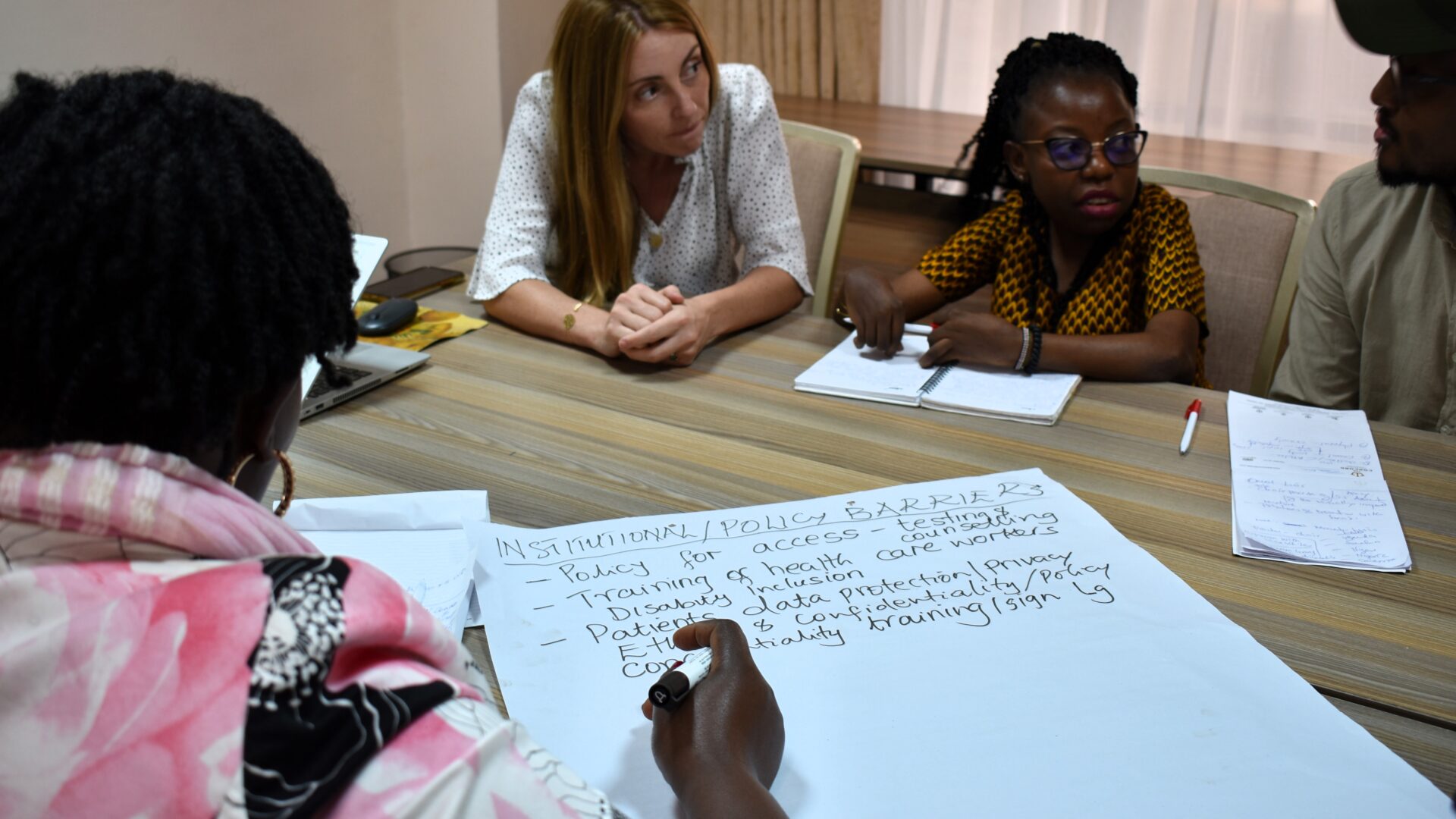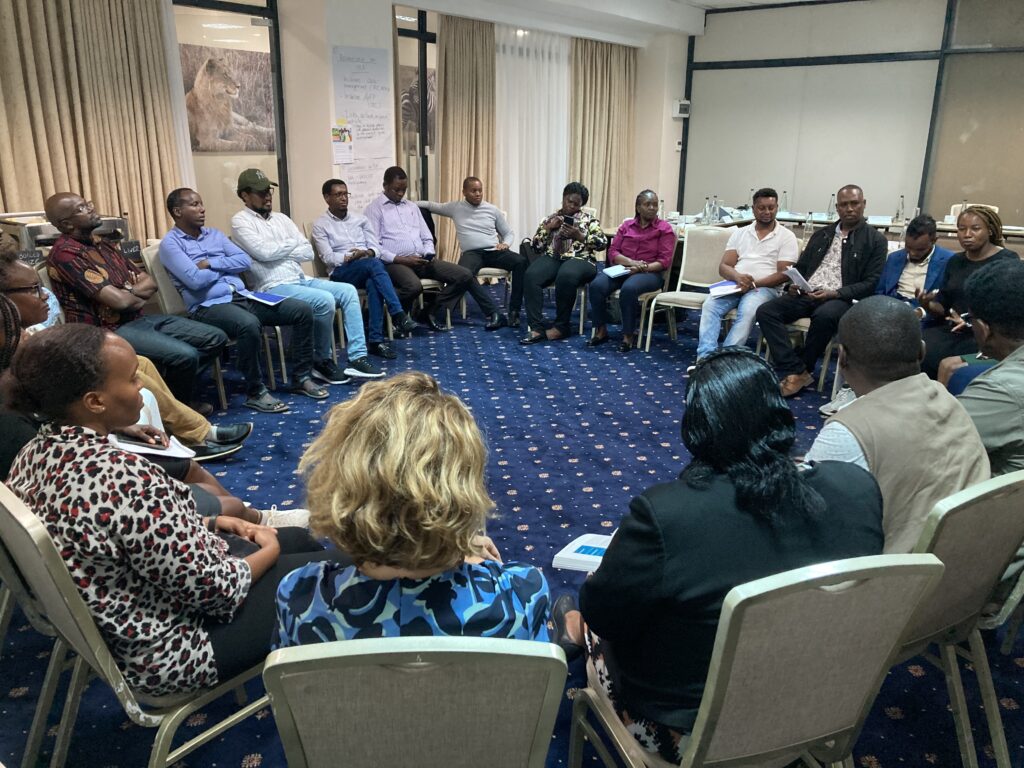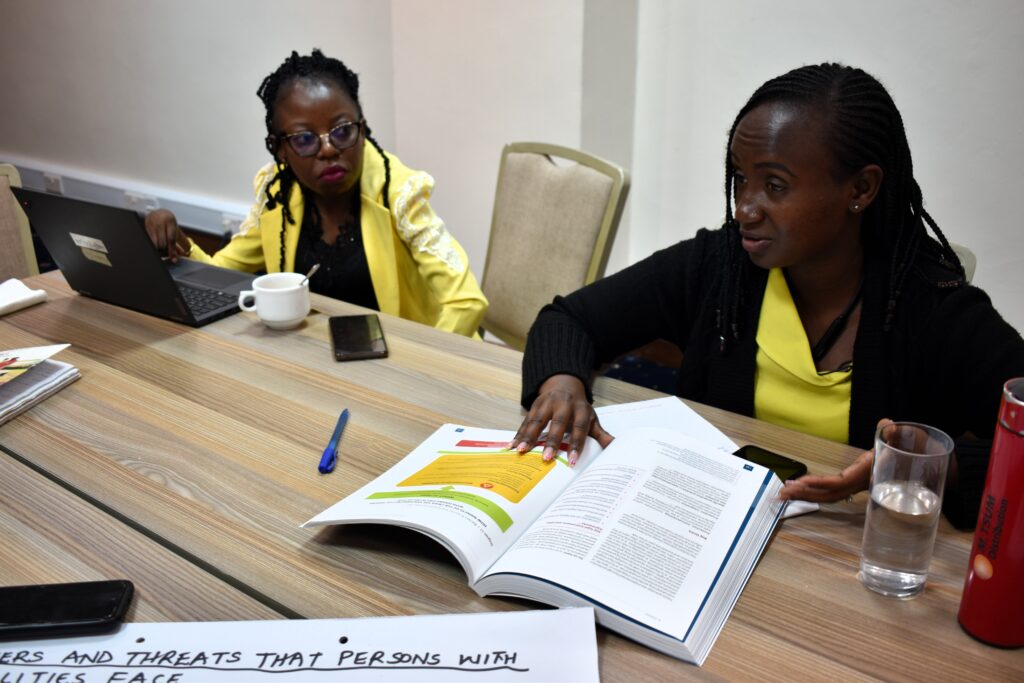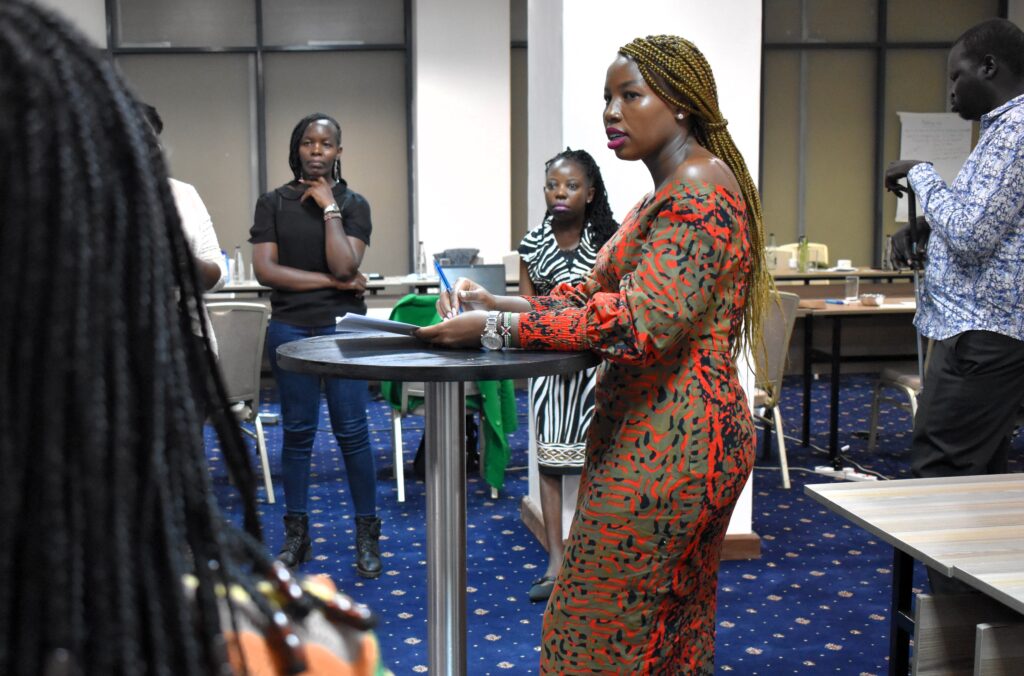Amplifying Changes Towards a Disability-Inclusive Humanitarian Response – Highlights from Our Regional Eastern Africa Training
Category
Capacity Building IASC-Guidelines
In total 26 humanitarian actors from 16 different humanitarian organizations took part in our Regional Eastern Africa Training on “Mainstreaming Disability in Humanitarian Action” on 27.10-02.11.23 in Nairobi, Kenya.
The four intense training days introduced the human rights-based approach to disability, deepened understanding of disability-inclusive humanitarian action, highlighted the promising practices on operationalizing the IASC Guidelines on Disability Inclusion and provided space for networking.
The workshop, facilitated by our Phase 3-Leave no one behind team, started with opening remarks by Dagmar Traub-Evans, the Somalia Desk Officer of German Embassy Nairobi and Mauot Anyang, a Chairperson of South Sudan Association of the Visually Impaired (SSAVI). Both highlighted – among others – Article 11 of the UN Convention on the Rights of Persons with Disabilities (CRPD), meaningful participation of persons with disabilities, and leaving no one behind in humanitarian crises.
Over the four days, the participants took a deep dive into disability inclusion in the humanitarian response and best practices for implementing the IASC Guidelines on Inclusion. The training content was adapted using the Disability Reference Group training package on ‘Introduction to disability-inclusive humanitarian action’ and discussed an introduction to disability and where it sits within the wider humanitarian landscape, the IASC Guidelines on the Inclusion of Persons with Disabilities in Humanitarian Action, accessibility, the Must-Do Actions and Twin Track Approach, and inclusive programme & project cycle management.
The training included a mix of input presentations, scenario work, guest speaker inputs and lab-style session. Participants expressed their appreciation particularly for the engaging and interactive approach, practical group work exercises, and inclusive facilitation.
The fourth day was dedicated as a special Review, Adapt and Action Learning (RAAL) laboratory session. The participants were given an opportunity to work on revisions of their own tools as well as learn from each other’s good practices. Two participant organisations shared their current data collection tools and guidance for assessing barriers and enablers. These were analysed and adapted in group work session to become more disability inclusive.
The participants left the training with a better understanding on how to mainstream disability as a crosscutting issue throughout the humanitarian project cycle. Many of them stated that they will implement the lessons learned in the field and share the knowledge within their organisation.
We want to warmly thank all the participants and co-facilitators for inspiring presentations, lively debate and exchange.


